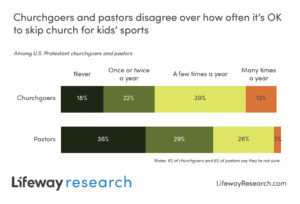
GAINESVILLE, Ga. (BP)–Today, Americans are born into a world dominated by debt, and the majority has no concept that there actually was a time when excessive home mortgages, automobile loans, school loans and credit cards did not exist.
The pitch is: “Easy monthly payments!” Yes, but “easy” for whom?
More and more financial market glitches are turning up. Mortgage problems have become serious, housing construction has slowed down, fuel prices have skyrocketed, lending banks have failed, and job losses have become severe in some fields.
Unfortunately, many people are discovering that someone was exaggerating when they were told how easy those monthly payments would be.
IGNORING GOD’S WORD
Without question, family financial problems seem to increase dramatically during economic slumps or at times like now, when gas prices have most of us reeling.
But generally, financial problems aren’t caused by economic slumps or depressions. Most family financial problems began long before the economic slump came along, perhaps as early as childhood.
Most families with financial problems don’t even identify the real trouble. They recognize only the symptoms of the problems, like unpaid bills, or the consequences of the symptoms, such as repossession of property. They seldom identify the real underlying cause of the problem.
Most of the symptoms of financial problems faced by families today — business failures, foreclosures, bankruptcies, out-of-control debt, two-job families and divorce — can be traced to the core problem of ignoring God’s financial principles as recorded in His Word.
“Now if you faithfully obey the Lord your God and are careful to follow all His commands I am giving you today, the LORD your God will put you far above all the nations of the earth” (Deuteronomy 28:1).
Often, when somebody’s ignoring God’s biblical financial principles, the problem was learned from parents who had the same troubles.
Unfortunately, God’s principles are increasingly being ignored by families who have adopted a get-rich-quick mentality and use easy credit to purchase “what I want, when I want it.”
The children of these parents then learn to buy on credit from their parents’ example. Now we’re reaping the burden of sown seeds of moderate debt that has taken the form of overwhelming excessive debt.
Lack of financial discipline in parents is reflected and amplified in the lives of their children and their children’s families. “What we do and allow in moderation, our children will allow and do in excess.”
That statement — as true today as the day it was spoken — was directed to the British House of Commons on May 1, 1865, by Benjamin Disraeli. It describes, quite accurately, the primary cause of the downward financial spiral of many families in America today.
God’s financial principles and instructions aren’t complicated or hard to understand. God designed them to be easily understood. He intends to free His people from financial burdens, not bind them with an unattainable set of dos and don’ts.
PREVENTIVE MEASURES
It makes good sense for families to practice prevention rather than recuperation. Families can exercise simple, preventive measures to counterbalance unbiblical financial practices and to prevent further financial problems.
The first is obvious — stop borrowing.
“The wicked borrows and does not repay, but the righteous is gracious and giving” (Psalm 37:21). Borrowing isn’t God’s best for His people and should never be used as a routine part of financial planning.
Then, after you stop borrowing, start saving.
Families today save less than people did during the Great Depression. “Precious treasure and oil are in the dwelling of the wise, but a foolish man consumes them” (Proverbs 21:20). Keep in touch with God’s principles; save for future needs and purchases, instead of borrowing or using credit.
AVOID HASTY DECISIONS
Ignore the “buy now, before it’s too late” pitches. God’s Word says, “The plans of the diligent certainly lead to profit, but anyone who is reckless only becomes poor” (Proverbs 21:5). Patience and consistency are the ways to financial security. In fact, one of the very best disciplines parents can teach their children is to work and save to reach a goal.
While these are simple steps, often excess indebtedness makes it difficult. That’s why it is so important to develop and live by a spending plan.
“Poverty and disgrace [come to] those who ignore instruction, but the one who accepts rebuke will be honored” (Proverbs 13:18).
Children need to learn by parents’ examples how to develop and live on a balanced budget, and break the cycle of debt. A spending plan allows you to decide how you’ll use your money.
When Christian families truly live by sound biblical financial principles, they show the way to financial freedom to family and friends. And their children grow up with the knowledge of God’s biblical principles and how to live by those principles.
Through consistent teaching and discipline it would take less than a generation to break the financial bondage under which so many Christians live, and free them to fund the work of the Lord — even in tough financial times.
After all, that’s what Jesus is talking about in Matthew 6:33. “Seek first the kingdom of God and His righteousness, and all these things will be provided for you.”
–30–
Howard Dayton is co-founder of Crown Financial Ministries and the current host of Crown’s radio program, “Money Matters.” Dayton and the late Larry Burkett joined forces in 2000 when Crown Ministries, led by Dayton, merged with Christian Financial Concepts, led by Burkett. The new organization became Crown Financial Ministries, on the web at www.crown.org.















